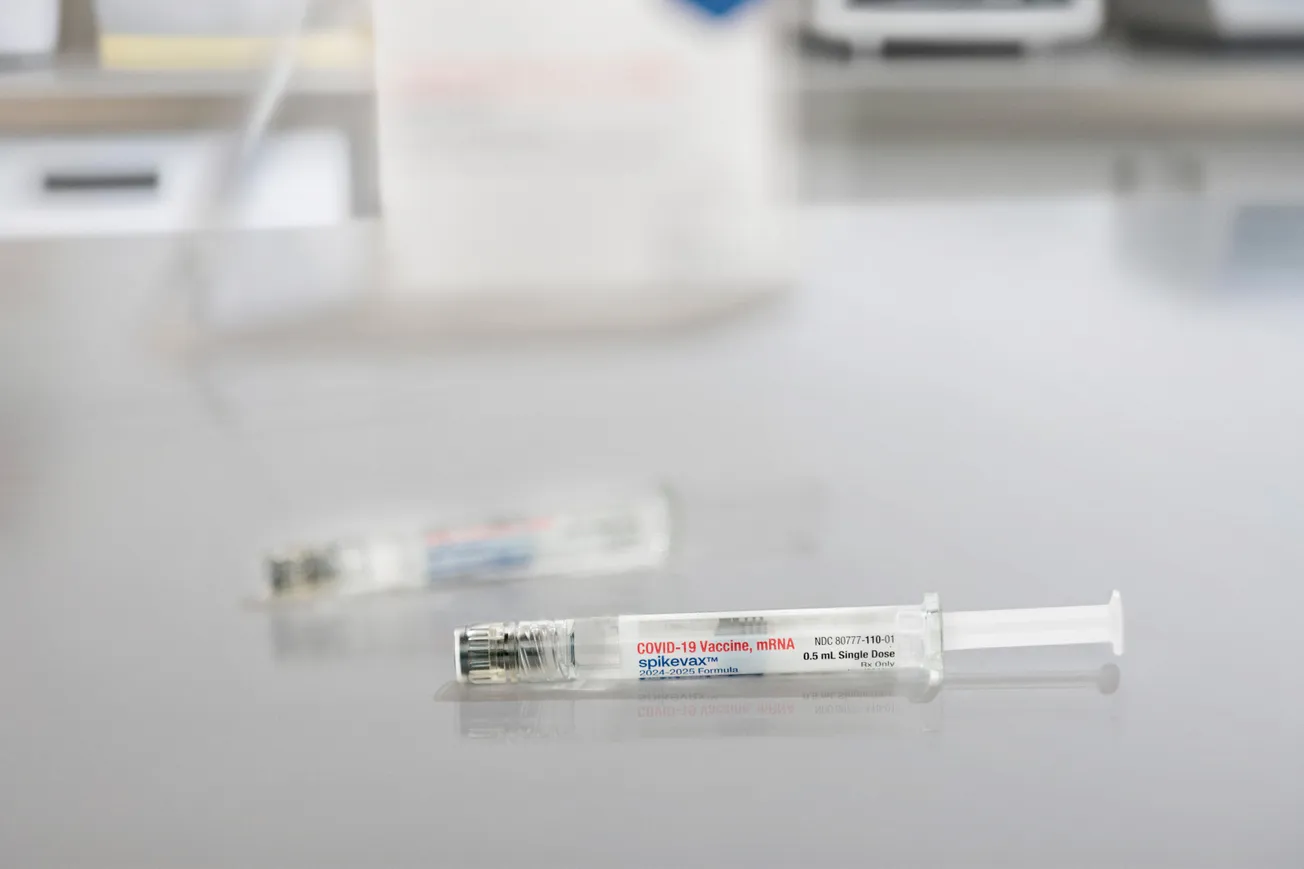NEW YORK — Prospective health benefits from GLP-1 drugs beyond weight loss and lower blood glucose continue to emerge.
New trial data revealed that Novo Nordisk’s Saxenda and Victoza (liraglutide), once-daily injections for obesity and diabetes, may slow the advance of Alzheimer’s disease.
Other research found that semaglutide-based Ozempic and Wegovy injections from Novo Nordisk may help smokers kick the habit.
All the medications diminish appetite and regulate blood glucose by copying the effects of gut hormones. Other positive effects, like lessened inflammation, may mean the GLP-1s can help treat other conditions.
Late last month, the European Medicines Agency’s (EMA) Committee for Medicinal Products for Human Use (CHMP) adopted a positive opinion for an update of the Wegovy (semaglutide 2.4 mg) label to reflect data from the SELECT cardiovascular outcomes trial, demonstrating a risk reduction of major adverse cardiovascular events (MACE) including death, non-fatal heart attack (myocardial infarction) or non-fatal stroke in adults with established cardiovascular disease (CVD) and either overweight or obesity (initial BMI ≥27 kg/m2) without diabetes.
The SELECT trial demonstrated that Wegovy statistically significantly reduced the risk of MACE by 20% compared to placebo when added to standard of care. In addition, the findings from SELECT showed that over a period of up to five years, risk reductions in MACE were achieved regardless of baseline age, sex, race, ethnicity, body mass index (BMI) and level of renal function impairment. The exact mechanism of cardiovascular risk reduction has not been established but is likely multifactorial.
“We believe that the recommendation to update the EMA label for Wegovy is a significant milestone for people living with cardiovascular disease and obesity. The SELECT data demonstrated that in addition to helping people manage their weight, Wegovy has the potential to protect lives by reducing the risks of major adverse cardiovascular events”, said Novo Nordisk executive vice president and head of development Martin Holst Lange.
For its part, Roche reported positive results from its clinical trial for an oral GLP-1 drug for obesity.
Roche reported the data from two arms of an ongoing multi-part Phase I clinical trial for CT-996, an investigational, once-daily, oral small-molecule GLP-1 receptor agonist being developed for the treatment of both type 2 diabetes and obesity. The data showed that treatment with CT-996 in participants with obesity and without type 2 diabetes resulted in a clinically meaningful placebo-adjusted mean weight loss of -6.1% within four weeks (p <0.001).1 The full study data will be presented at an upcoming medical meeting.
Obesity is one of the most urgent health challenges in the world, with extensive comorbidities, such as type 2 diabetes, cardiovascular disease, liver disease and chronic kidney disease. More than 4 billion people — about 50% of the world’s population — are estimated to be impacted by obesity or will be overweight by 2035.
“We are pleased to see the clinically meaningful weight loss in people treated with our oral GLP-1 therapy CT-996, which could eventually help patients address both chronic weight management and glycemic control indications,” said Dr. Levi Garraway, Roche’s chief medical officer and head of global product development. “Following our data for CT-388, this is the second positive readout in less than three months from our growing metabolic pipeline, which includes both oral and injectable options to address patients’ needs across a spectrum of related diseases.”
CT-996 was well tolerated, with mostly mild or moderate gastrointestinal-related adverse events, consistent with the safety profile of the incretin drug class. There were no treatment discontinuations related to the study drug. The study results also showed that blood levels of CT-996 were largely unaffected either during fasting or after a standardized high-fat meal. Thus, CT-996 could potentially be dosed without regard to meal timing, thereby affording greater dosing flexibility for patients. Based on the study data, CT-996 is anticipated to be used not only as a therapy for achieving glycemic control and inducing weight loss, but also potentially for oral weight maintenance therapy following weight loss induced by injectables.
Despite numerous approved treatments, the trajectory for people with obesity or its comorbidities has not changed significantly; these conditions remain underdiagnosed and undertreated, so their impact on society continues to grow. Oral and injectable incretin modalities are critical to address the high unmet need. They may not only offer broader access to patients living with obesity but, together, they could also support the prevention of obesity-related comorbidities or complications such as type 2 diabetes and heart disease, among many others.
The CT-996-201 trial (NCT05814107) is a multi-part, multi-cohort Phase I randomized, double-blind, placebo-controlled, single and multiple ascending dose study designed to evaluate the safety, tolerability, pharmacokinetics and pharmacodynamics of CT-996 in otherwise healthy adults who are overweight or obese, with and without type 2 diabetes. Part 1 was a single ascending dose in 40 participants with overweight or obesity (completed); part 2 was a multiple ascending dose in three sequential cohorts of a total of 25 participants with obesity without type 2 diabetes (completed); part 3 is a multiple ascending dose study in two sequential cohorts of 30 participants with obesity and type 2 diabetes (planned to be initiated in the fourth quarter of 2024). The primary endpoint of the trial is safety and tolerability of CT-996; secondary endpoints include the assessment of the pharmacokinetics of CT-996, along with its effect on body weight and glucose homeostasis. Based on the current Phase I results, CT-996 will advance into Phase II clinical development.
CT-996 is an investigational, once-daily, oral small-molecule GLP-1 receptor agonist being developed for the treatment of both type 2 diabetes and obesity. Unlike the endogenous GLP-1 hormone, CT-996 is specifically designed to be a biased GLP-1 receptor agonist that activates cAMP signaling with minimal-to-no beta-arrestin recruitment. These finely-tuned signaling properties are expected to lead to strong glycemic control, significant weight loss and good tolerability.
Obesity is a heterogeneous disease, and Roche’s R&D portfolio of incretin-based clinical and preclinical assets has great potential to address patients’ needs by providing treatments as mono and combination therapy for obesity, diabetes and various other cardiometabolic indications. The company is developing a broad portfolio of foundational assets that range from orals to injectables, as well as molecules with new modes of action to address the multiple needs of patients living with obesity. Its differentiated incretin portfolio includes:
• CT-388, an investigational dual GLP-1/GIP receptor agonist for the treatment of obesity in patients with and without type 2 diabetes, currently in Phase II. Injected subcutaneously once a week, it is being developed as a stand-alone and possibly also in combination, and has the potential to be a best-in-class therapy for chronic weight management and type 2 diabetes, and it could be expanded to other indications.
• CT-996, an investigational, once-daily, oral small-molecule GLP-1 receptor agonist being developed for the treatment of both type 2 diabetes and obesity, currently in Phase I, with the potential to be a best-in-class oral treatment for type 2 diabetes and chronic weight management.
• CT-868, an investigational, once-daily, subcutaneously injected dual GLP-1/GIP receptor agonist currently in Phase II with the potential to be a first-in-class treatment for glycemic control as an adjunct to insulin in patients living with type 1 diabetes.
Incretins are gut hormones secreted after food intake that play a role in modulating blood glucose by stimulating insulin secretion and suppressing appetite. Emerging scientific data show a wider biologic effect of incretins in multiple organs including the liver, heart and brain, suggesting they may have a broader role in the body beyond glucose modulation. Over the past few years, incretins have been clinically validated as targets, and they are now the emerging standard of care therapies in obesity, but could also be effective in other metabolic indications, as well as in cardiovascular and chronic kidney disease.









